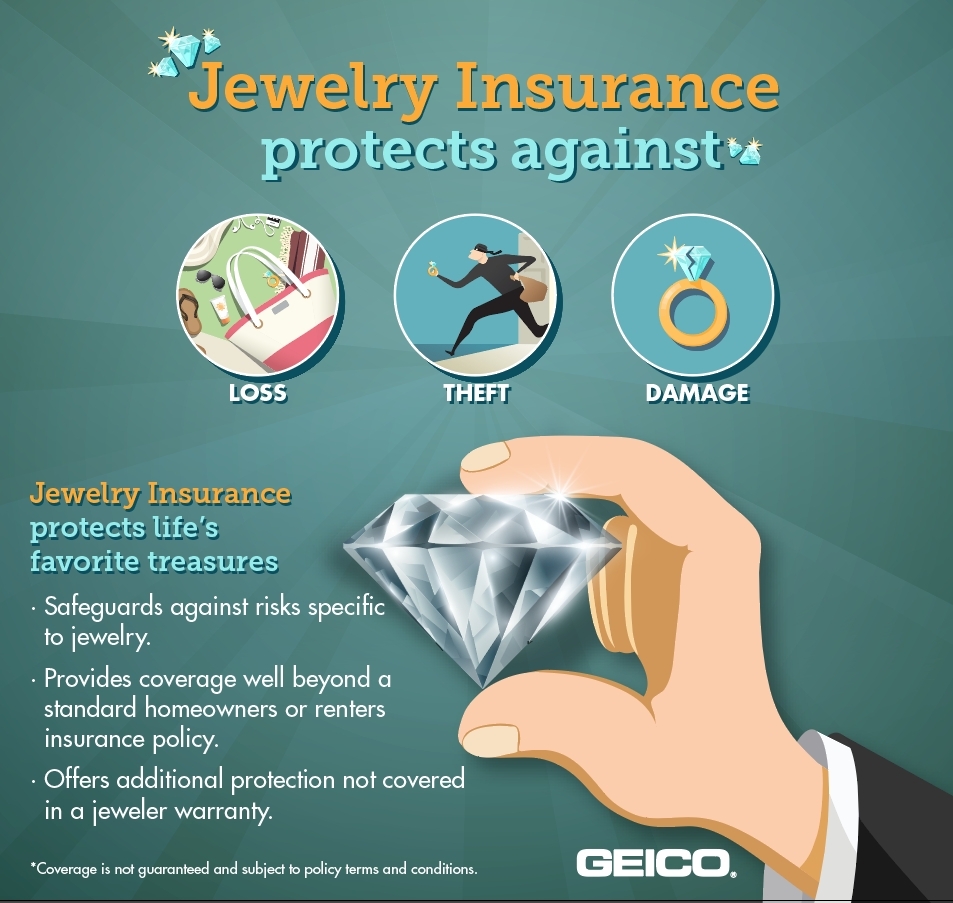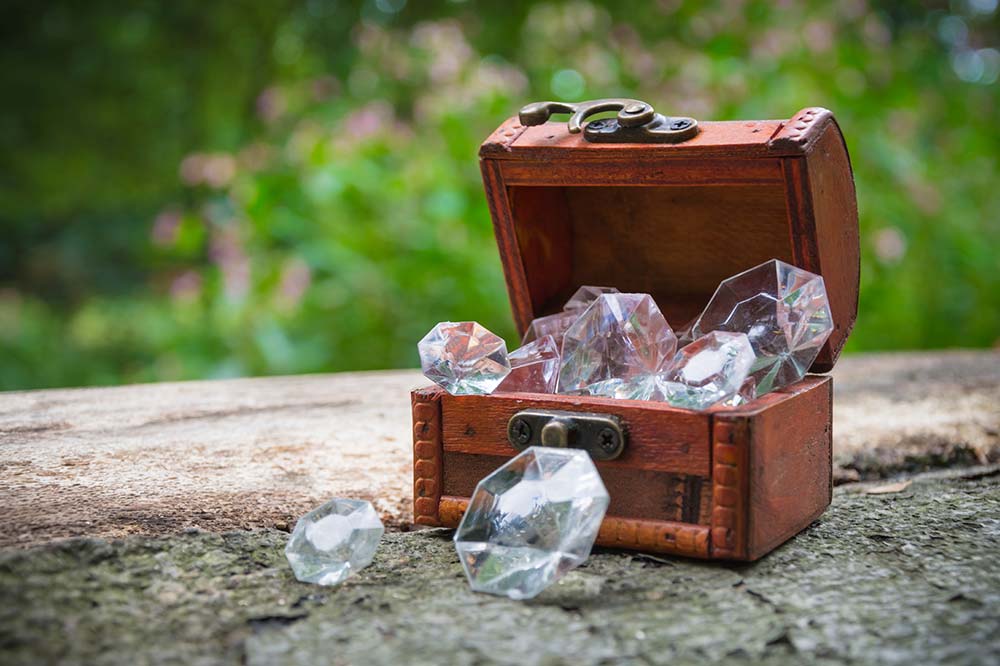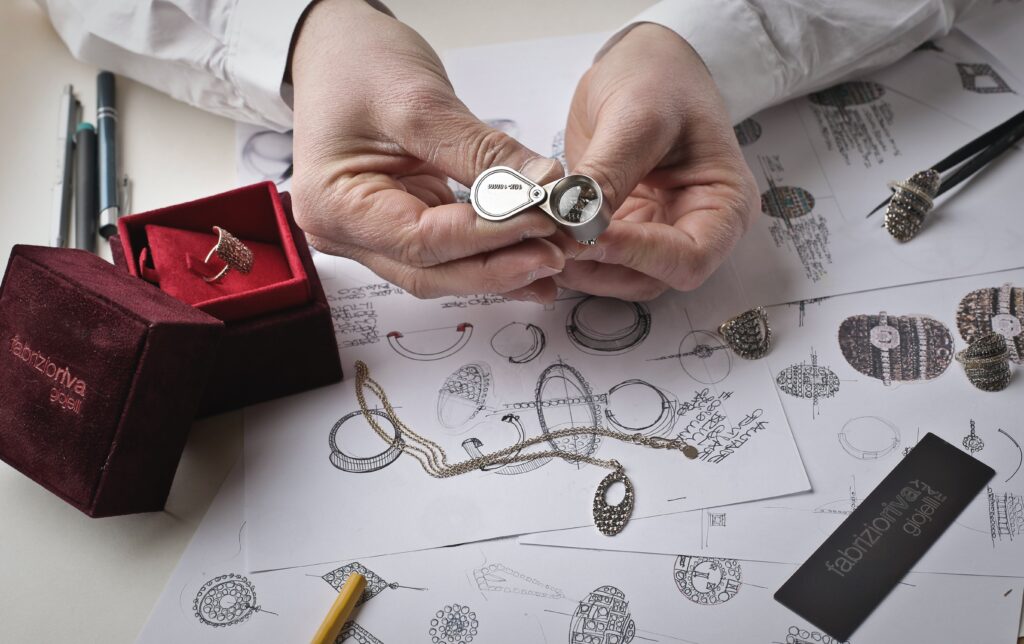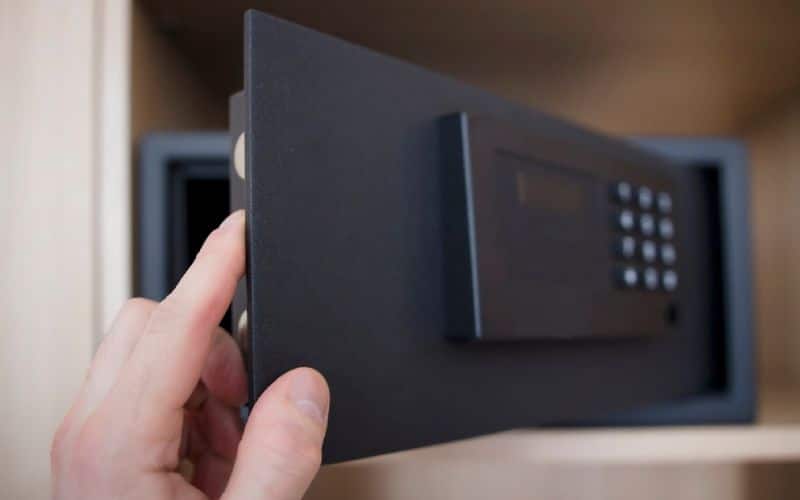Safeguarding Your Treasures: A Comprehensive Guide to Jewelry Insurance
Related Articles: Safeguarding Your Treasures: A Comprehensive Guide to Jewelry Insurance
Introduction
With enthusiasm, let’s navigate through the intriguing topic related to Safeguarding Your Treasures: A Comprehensive Guide to Jewelry Insurance. Let’s weave interesting information and offer fresh perspectives to the readers.
Table of Content
Safeguarding Your Treasures: A Comprehensive Guide to Jewelry Insurance

Jewelry holds immense sentimental and monetary value, often representing cherished memories, significant milestones, and substantial financial investments. Protecting these precious possessions from unforeseen events is paramount, and jewelry insurance emerges as a crucial safeguard. This comprehensive guide delves into the intricacies of jewelry insurance, elucidating its importance, benefits, and essential considerations.
Understanding the Need for Jewelry Insurance
Jewelry, by its nature, is susceptible to a myriad of risks. Theft, accidental damage, and natural disasters can inflict irreparable harm, leaving owners with substantial financial losses and emotional distress. Jewelry insurance serves as a financial safety net, mitigating these risks and providing peace of mind.
Benefits of Jewelry Insurance
-
Financial Protection: Jewelry insurance offers financial compensation for losses incurred due to covered perils, including theft, fire, accidental damage, and natural disasters. This financial protection ensures that you can replace or repair damaged or lost jewelry without incurring significant financial burdens.
-
Comprehensive Coverage: Jewelry insurance policies typically cover a wide range of perils, providing comprehensive protection against various unforeseen events. Coverage can extend to both the jewelry itself and its accompanying accessories, such as cases and boxes.
-
Appraisal and Valuation: Insurance companies often require professional appraisals to determine the value of your jewelry. This process ensures accurate valuation, preventing disputes and facilitating fair compensation in the event of a claim.
-
Peace of Mind: Knowing your precious jewelry is insured provides a sense of security and peace of mind. You can enjoy your possessions without the constant worry of potential losses.
Types of Jewelry Insurance
Jewelry insurance can be obtained through various avenues:
-
Homeowners or Renters Insurance: Many homeowners and renters insurance policies offer limited coverage for jewelry. However, these policies typically have low coverage limits and may impose restrictions on the types of jewelry covered.
-
Personal Articles Floater: A personal articles floater is a specialized insurance policy designed to provide comprehensive coverage for specific valuable items, including jewelry. This type of policy offers higher coverage limits and broader coverage options, making it ideal for protecting valuable jewelry collections.
-
Stand-Alone Jewelry Insurance: Stand-alone jewelry insurance policies provide dedicated coverage for jewelry, offering the most comprehensive protection. These policies often include features like replacement cost coverage, worldwide coverage, and coverage for lost or damaged settings.
Choosing the Right Jewelry Insurance
Selecting the appropriate jewelry insurance requires careful consideration of your individual needs and the value of your jewelry collection. Here are some key factors to consider:
-
Coverage Limits: Determine the maximum amount of coverage you require based on the total value of your jewelry collection.
-
Perils Covered: Ensure the policy covers the specific risks you are concerned about, including theft, fire, accidental damage, and natural disasters.
-
Deductibles: Understand the deductible amount, which is the amount you will pay out-of-pocket before the insurance company covers the remaining costs.
-
Appraisal Requirements: Clarify the appraisal requirements and the frequency of required re-appraisals.
-
Claims Process: Inquire about the claims process, including the documentation required and the timeframes for processing claims.
Tips for Protecting Your Jewelry
-
Inventory and Appraisal: Maintain a detailed inventory of your jewelry collection, including photographs and descriptions of each item. Obtain professional appraisals to establish accurate valuations.
-
Safe Storage: Securely store your jewelry in a safe deposit box or a secure location within your home. Consider using a jewelry safe or a fireproof safe for added protection.
-
Wear and Care: Handle your jewelry with care, avoiding unnecessary wear and tear. Regularly clean and maintain your jewelry to prevent damage.
-
Travel Precautions: When traveling, take precautions to protect your jewelry. Consider wearing your most valuable pieces only when necessary and using a secure travel case for transportation.
FAQs about Jewelry Insurance
Q: What types of jewelry are covered by insurance?
A: Jewelry insurance typically covers a wide range of items, including necklaces, bracelets, rings, earrings, watches, and precious gemstones. However, some policies may exclude specific types of jewelry, such as costume jewelry or items with specific materials.
Q: How often do I need to re-appraise my jewelry?
A: Jewelry values can fluctuate due to market conditions and changes in the cost of precious metals and gemstones. Insurance companies typically require re-appraisals every 3-5 years, or if the value of your jewelry changes significantly.
Q: What if my jewelry is lost or stolen while traveling?
A: Jewelry insurance policies often provide coverage for losses incurred while traveling. However, it’s crucial to inform your insurance company about your travel plans and ensure your policy includes worldwide coverage.
Q: What if my jewelry is damaged while being repaired or cleaned?
A: Some insurance policies offer coverage for damage incurred during repairs or cleaning by reputable jewelers. However, it’s essential to choose reputable jewelers and obtain proof of insurance for any repairs or cleaning services.
Q: What happens if my jewelry is lost or stolen from my home?
A: In the event of a loss or theft, you must immediately contact your insurance company and file a claim. You will need to provide documentation such as a police report, appraisal reports, and any other relevant information.
Conclusion
Jewelry insurance provides invaluable protection for your cherished possessions, safeguarding them from the perils of life. By understanding the benefits, types, and key considerations, you can make informed decisions about protecting your jewelry collection. Remember to maintain a detailed inventory, secure your jewelry appropriately, and choose a reputable insurance company to ensure comprehensive coverage and peace of mind.


.png)


Closure
Thus, we hope this article has provided valuable insights into Safeguarding Your Treasures: A Comprehensive Guide to Jewelry Insurance. We thank you for taking the time to read this article. See you in our next article!